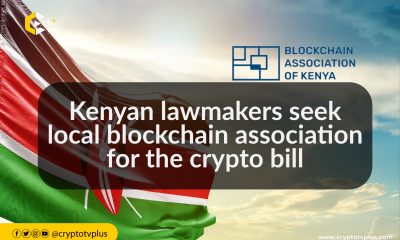News
A Look Inside Crypto Regulation in Africa in 2022 – Report

According to a report on crypto regulation in Africa by CV VC, African countries are showing diverse responses to the acceptance of cryptocurrency, and there is increasing consideration about the use of crypto on the continent.
The report highlighted that the number of African nations with an uncertain state of crypto decreased from seventeen to nine, while the number of nations with a complete ban on crypto remains four.
However, the report also noted that 36 African nations have an implicit ban on crypto as of the end of 2022. This indicates that there is still a long way to go in terms of crypto adoption in Africa, and more efforts are needed to create a favorable regulatory environment for cryptocurrencies to thrive on the continent.
Regulation in Nigeria, Mauritius, Kenya, Ghana, Seychelles, and South Africa
Based on the report, although cryptocurrencies are not recognized as legal tender and banks are prohibited from participating in crypto transactions, Nigerians actively trade cryptocurrencies through peer-to-peer networks.
In Mauritius, the situation mirrors Nigeria’s, but with increased promotion of digital assets since the country issued its first license for virtual asset providers in 2021. Virtual asset providers can acquire an operational license from the Financial Services Commission, while Security Token Offerings (STOs) adhere to a specific framework.
Further findings by CV VC revealed that Kenya has been moving towards implementing taxation on the use of crypto. The Kenyan Capital Markets Law was amended in November 2021, necessitating individuals who own or deal in cryptocurrencies to provide information for tax purposes. In Seychelles, Ghana, and South Africa, crypto has yet to become legal tender as well, according to CV VC.
Measures taken by their governments to regulate crypto and digital assets include the Bank of Ghana’s announcement in December 2021 that it will develop a framework for regulating the digital asset industry; and the joint effort by the Financial Services Authority and the Ministry of Finance of Seychelles to create a digital currency framework for businesses, even though exchanges can obtain a cryptocurrency license under the country’s Securities Act.
Crypto and Botswana, Angola, Namibia, and Zambia
The situation in Botswana, Angola, Namibia, and Zambia is also similar to that in other African nations. CV VC noted that in Botswana, cryptocurrencies are legal as the nation passed a bill to regulate trading in cryptocurrencies and digital tokens.
However, the nation has not recognized cryptocurrencies as legal tender. The country is developing legal instruments to regulate cryptocurrencies and is also considering launching a CBDC to regulate virtual assets.
Zambia is testing blockchain-based technology to regulate cryptocurrency in the country, providing clarity to investors and service providers, CV VC said. The government is also exploring a CBDC to reduce transaction costs and boost participation in the formal financial system.
Namibia is uncertain about allowing cryptocurrency payments in the country, but the Bank of Namibia has announced a phased approach to include virtual assets and virtual asset service providers under its Fintech Innovations Regulatory Framework.
Crypto taxation in Africa
Another aspect of crypto regulation explored by the research is crypto taxation. CV VC highlighted that, though certain African nations refer to crypto as an asset that can be taxed, there are no specific tax laws in a lot of African countries.
For example, in South Africa, crypto assets are not treated as currency, but rather as an asset subject to tax in terms of the general South African income tax principles. Any provisions in the ITA that apply to “financial instruments” will also apply to crypto assets.
The findings also revealed that while Ghana, Kenya, and Mauritius do not have specific tax legislation governing cryptocurrencies, existing domestic tax rules will apply. In Nigeria, where there is also no explicit tax legislation covering cryptocurrency, the federal government has stated its intention to submit new legislation under the Finance Bill 2022.
Among the suggestions are measures to tax cryptocurrency, and capital gains from digital assets such as lotteries, gambling, and cable ventures.
Read also;
Seychelles and South Africa top African blockchain funding list in 2022
How Venture Round led the African blockchain funding in 2022
























